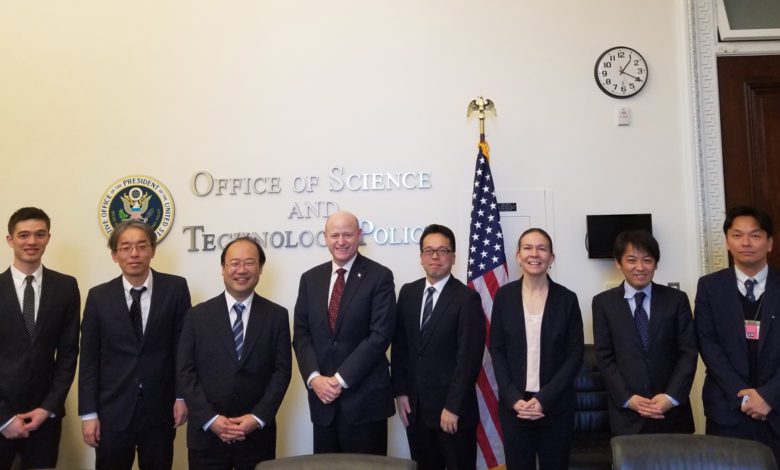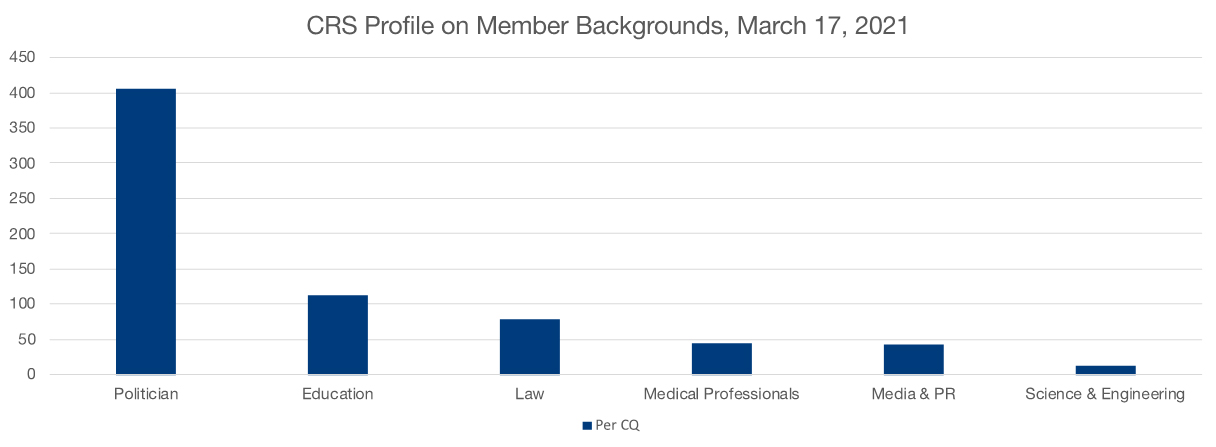
I had the honor of serving in the White House Office of Science and Technology Policy as an IEEE-USA Government Fellow. Before describing the “day in the life,” I would like to explain how important it is for scientists and engineers to consider government service, more especially as facilitated by the IEEE-USA Government Fellowship program.
Did you ever think to yourself that the government should be doing something, the government should not be doing something, or the government seems to not understand basic engineering principals based on what you see it is or is not doing? If so, read on!
One question I am asked is whether scientists and engineers serve in the federal government. The answer is an unequivocal “Yes,” and many are IEEE members and Fellows. NASA has rocket scientists, electrical engineers, computer scientists, astrophysicists, etc., on the payroll. The National Science Foundation (NSF), our science funding agency, has many scientists and engineers on full-time staff and rotating from the private sector. Agencies such as the Department of Defense, the Department of Energy, the Agriculture Department, the National Institute of Health, and the National Institute of Science and Technology also have many engineers and scientists on staff or on rotation.
That said, let us look at the composition of the leadership of the federal government. The Congressional Research Service (CRS) publishes a profile of Member backgrounds.[i]

These are some of the self-identified careers of Members of Congress. For space reasons, I did not include some of the less-represented careers. Not surprisingly, the most common prior experience of a politician is as a politician. For example, a Senator is likely to be a former Representative. The numbers also add up to more than 535, as people may have multiple careers prior to their election. Consider the Senator who was a Representative: they may well have been a practicing lawyer in the past. Note the sliver on the right end of the chart. Those are the Members that mentioned having practiced science or engineering. Per Congressional Quarterly, the House has eight engineers and the Senate has one. On the science side, the House has one physicist and one chemist, and the Senate has one geologist.
CRS notes that 22 Representatives and four Senators have doctorates (Juris Doctorates, the U.S. law degree, does not count). However, they are in education, history, justice, and ministry. In the House, there is one member each with a mathematics, physics, and animal science doctorate. The other 19 are in the arts and humanities, as well as ministry.
What about an expert agency, like the Federal Communications Commission? The senior most commissioner has an undergraduate degree in economics and english. Given the importance of economic theory and applied economic sciences to the work of the FCC, that is a good foundation. For graduate work and post-baccalaureate employment? A JD and a very brief stint as a lawyer at a law firm. The other commissioners? One government major, one social studies major, and one music theory & composition major. Those are not STEM-heavy majors. What about graduate school? The musician did get a Masters in music performance, but eventually all got their JD. What about work experience? All worked as attorneys at law firms. In terms of other education, one of the commissioners does hold a tower climbing safety certification!
Is this a problem? On the one hand, one can say there is no problem. The role of government is to write laws, and the role of a regulator is to write and enforce regulations, so it would make sense to have people trained as lawyers write laws and regulations. One of my federal colleagues pointed out to me that at their agency the lawyers practiced law by writing and enforcing regulations, the economists practiced economics by devising auctions and analyzing market structures, and the engineers… read briefs. In other words, the engineers are not practicing engineering.
On the other hand, one can say there is a problem. At best, the policy makers are dependent on contractors or federally funded research and development centers (FFRDCs) to keep abreast of developments in the state of the art, and to help analyze technology. At worst, regulators are dependent on the regulated entities, who do have practicing engineers, to help with technology. What could possibly go wrong with the regulated industry being the primary source of technical information for their regulator?
The IEEE-USA Government Fellows program addresses the dearth of engineering experience in public policy. You get attached to an agency, department, or executive office to help form policy, advise the Seniors on how technology can impact the mission, advise them on how a legislative or regulatory proposal will impact technology evolution, and have a front-row seat at policy formation and execution.
In my case at the White House, I was asked to figure out how to make a contiguous block of 100 MHz of prime mid-band 5G spectrum available for non-federal use across the contiguous 48 States and D.C. without major encumbrances. This spectrum was mostly being used by the Department of Defense, so a major consideration was how to make the spectrum available without impacting military readiness and homeland defense. There were many competing technical issues that needed adjudication, as well as the occasional request to consider unconventional methods for opening the spectrum to private sector use. The most senior policy makers in the Administration needed an understanding of the physics, engineering, economic, business, and policy implications of the various ways of moving forward. As it was, this spectrum neighborhood was being thought about for sharing for close to twenty years and no one was able to break the logjam. Note that no matter how much one thinks they know about the topic, the role is not to directly calculate the solution. Rather, it is to drive the constituencies to a workable solution. In this case, more than 170 engineers and scientists contributed to the final plan. The result? The FCC will be holding Auction 110 of this spectrum later this year.
Opening that spectrum is what got my interest to serve in the White House. As well, improving broadband access for underserved communities was a high priority of mine. However, like many people in 2020, the pandemic upended my plans. In the first weeks of March, I was wondering if accepting the IEEE-USA Government Fellowship was perhaps a mistake — who cares about 5G spectrum or Internet access when the health of the nation is at risk? By the end of March, I was glad I was there. Our office helped facilitate the Apple and Google COVID-19 contact tracing applications, the opening and sharing of COVID-19 research, and making supercomputer resources available for COVID-19 researchers. In my direct portfolio, the pandemic highlighted the importance of broadband access. This went well beyond just deployment; I had the opportunity to work with with Health and Human Services to help educate doctors who could not travel on how to use telemedicine to reach patients who could not travel.
The pandemic also raised awareness of network security, both today and in the future. I led the effort to produce the R&D, test, and international standardization sections of the Securing 5G and Beyond Act Implementation Plan, as well as consulting on the entirety of the plan. This and other work brought me in contact with our international partners working on similar issues to protect their citizens.
I had the opportunity to work on the President’s communications and cybersecurity R&D budget priorities. Going in to the position, I thought I had a basic idea of how the process works. However, it is quite different living it, more especially when working with colleagues, both in my office and other components of the Executive Office of the President, working to trade-off competing priorities.
IEEE-USA Government Fellows often experience such an unexpected wide breadth of work. It is quite common to take on an assignment in a Congressional Office or agency for one program and then find yourself working on quite a diverse set of issues.
I will have to say the White House experience is unique in that it is, by definition, closely associated with partisans. In my case, broadband, cybersecurity, and 5G are bipartisan issues. However, I learned to look closer at news articles. It was not uncommon for me to see a headline and think to myself that is NOT what is going on or what happened. Then I would read the article and realize the headline writers were somewhat detached from the facts. I may never have had that realization if the articles were not about things I was working on.
There is also a lot of history and, honestly, awe when going to meetings in the West Wing. The opportunity to make a real contribution to the safety, security, health and wellbeing of the country is worth occasional personal inconveniences. If you are inclined, as noted above, the federal government needs IEEE members to serve to help guide the nation.
| Dr. Burger’s OSTP Fellowship was supported through member donations to the IEEE-USA Fund, which is administered by the IEEE Foundation. Donations to support IEEE-USA programs are welcome and can be made at: https://www.ieeefoundation.org/ieeeusa |
Dr. Eric W. Burger served as an IEEE-USA Government Fellow at the White House Office of Science and Technology Policy from 2019 to 2021.







